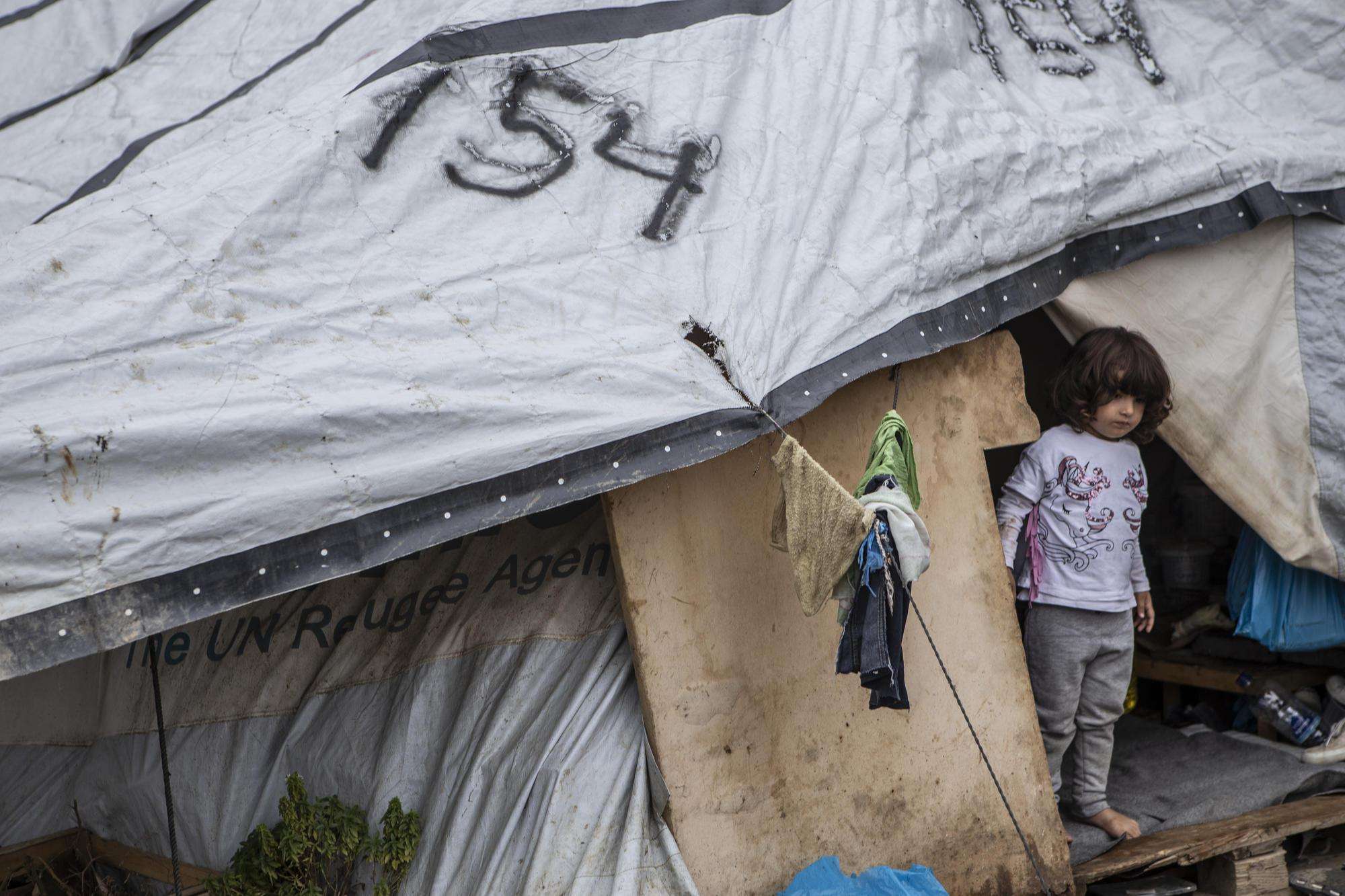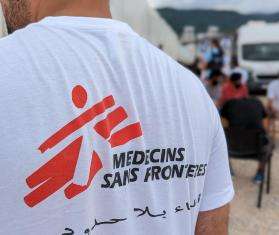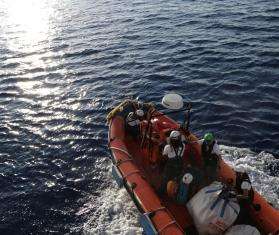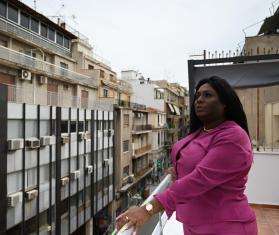NEW YORK/ATHENS, MAY 25, 2023—The international medical humanitarian organization Doctors Without Borders/Médecins Sans Frontières (MSF) is extremely concerned about the continuously deteriorating situation for migrants and refugees on the Greek island of Lesbos. Many people there have been exposed to violence and have alleged abductions by unidentified masked people, pushbacks that forced them out of Greece, arbitrary detentions, and deprivation of food and shelter. Greek authorities must investigate reports of hundreds of missing migrants—assumed to have been forcibly pushed back to sea—and implement safe and dignified reception conditions for those who remain on the island, said MSF.
When people arrive on Lesbos in urgent need of medical treatment, MSF teams are alerted by the United Nations High Commissioner for Refugees (UNHCR) and other actors. Several patients that MSF has recently treated said that they were traumatically intercepted by people who forcibly pushed them back to sea during previous attempts to reach Greece. MSF teams often have trouble finding newly arrived people in need of medical care on Lesbos—likely because they are hiding out of fear or are being pushed back to sea before medical teams can find them.
“When we are alerted of newly arrived people in urgent need of medical assistance, we spend hours—sometimes days—looking for them as they are often hiding in forests,” said Nihal Osman, MSF project coordinator in Lesbos. “Since MSF started providing emergency medical assistance to people arriving by boat to Lesbos in June 2022, we have been unable to find approximately 940 people at their reported locations.”
For migrants and asylum seekers who do make it to Lesbos, they are sent to two centers depending on where on the island they arrived—either Mavrovouni, one of the several EU-funded Closed Controlled Access Centers (CCAC), or Megala Therma. CCACs were marketed by the EU as a way to improve living conditions for people arriving in Europe, though their design actually severely restricts people’s movements and keeps them contained in prison-like facilities.
On May 17, Greek authorities stopped providing food to all migrants and refugees, except those who are still waiting for their asylum claims to be processed. Furthermore, many children who migrated to the island are being stripped of their social security numbers, making them ineligible to receive basic vaccinations and violating their human rights.
“Tensions have risen in the CCAC as a result,” Osman said. “Patients complain about the humiliation they suffer standing in line for hours, and the frustration related to the reduction of food. The government is using food as leverage to force people to leave the facility. Stripping hundreds of people of their basic rights—including access to food and shelter with no alternatives—could have serious consequences on people’s physical and mental health.”
In Megala Therma, on the northern coast of Lesbos where MSF has been providing health care since 2020, the situation is especially alarming. Formerly a government COVID-19 quarantine center, the facility now houses migrants before they are transferred to the Mavrovouni CCAC. People in Megala Therma are not registered and are essentially arbitrarily detained for days—in some cases for more than two weeks—before being transferred to the CCAC in Mavrovouni. Living conditions in Megala Therma are dire. People are put into overcrowded refugee housing units that have no beds. Sometimes 14 people are squeezed into a unit with space for five. The facility is also isolated, making it difficult for medical actors like MSF to access the facility to respond to medical emergencies.
“Everyone, including children, are housed together [in Megala Therma], irrespective of their vulnerabilities without consideration for safety and protection procedures,” Osman said. “MSF doctors visit twice a week, but if medical emergencies occur on any other day, no one is on site to respond, and it would take an ambulance more than an hour to reach the patient. Megala Therma camp is emblematic of the cruel and dysfunctional approach adopted in CCACs, supported by EU member states, and funded by the European Commission. MSF has extensively criticized and denounced these harsh policies.”
Greek authorities and the European Commission must immediately investigate allegations of people being threatened, abducted, and treated poorly by unidentified masked people who are systematically engaging in pushbacks and endangering people’s lives on land and at sea. Additionally, arbitrary detention of unregistered new arrivals in Megala Therma must end. It is also critical that all people seeking safety on Lesbos—regardless of their legal statuses—are able to receive quality, timely medical care and humanitarian aid, including emergency medical care in the dedicated reception facilities.
About MSF in Greece
MSF has been providing medical and humanitarian assistance to asylum seekers, refugees, and migrants in Greece since 1996. Since 2022, MSF has been providing emergency medical assistance to people arriving by boat on the island of Lesbos. MSF activities include primary health care, treatment for chronic diseases, sexual and reproductive health care, individual and group clinical psychological care, and psychiatric care, as well as a package of socio-legal support.




